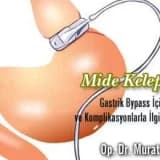Pediatric renal transplantation: Clinical analysis of 28 cases.

Pediatric renal transplantation: Clinical analysis of 28 cases.
Source
Haydarpasa Numune Research and Training Hospital, 1st Department of Surgery and Transplantation, Istanbul, Turkey. [email protected]
Abstract
We performed an outcome analysis of 28 pediatric renal transplant recipients whose mean age at transplantation was 15.2 +/- 2 years (range: 11 to 17 years) and the M/F ratio, 0.75. Four patients received cadaveric grafts. One patient needed retransplantation due to primary nonfunction. Mean HLA match was 3.6 (range: 3 to 5). Immunosuppression was cyclosporine (n = 13) or tacrolimus (n = 11) or sirolimus (n = 4), as well as steroids and azathioprine or mycophenolate mofetil. Delayed graft function occurred in four patients. The main complications were arterial hypertension (n = 11), anemia (n = 4), urinary tract infection (n = 10), hypercholesterolemia (n = 7), and cytomegalovirus infection (n = 1). An acute rejection episode (ARE) occurred in four patients. ARE and hypertension rates were similar between the immunosuppressive drug groups. All the patients with graft failure were on cyclosporine (P = .03). Hemodialysis and peritoneal dialysis (median duration: 6 months) were performed preoperatively in 25 and 3 patients, respectively. The length of pretransplant dialysis was longer among patients with graft failure (P > .05). Noncompliance (10.7%) resulted in an ARE in one patient and graft loss in two patients. One patient died with a functioning graft. Primary disease recurred in one patient. The median follow-up period was 44 months (range: 6 to 157 months). Mean serum creatinine level was 1.35 +/- 0.74 mg/dL at the last follow-up. One- and 3-year graft survival rates were 92% and 86%, respectively, and patient survival was 100%, each. Seventeen patients (60.7%) continued their education after the transplantation; six started working. Successful transplantation in the pediatric age group together with intensive rehabilitation posttransplantation are important to make these children productive individuals to the society.



